A Father’s Tribute to His Bar-Mitzvah
by Samuel Bendayan
“Kedoshim tihyu ki kadosh Ani”
“You shall be Holy, for I the L-rd your G-d am Holy.”
The word “holy” is probably one of the most misused and abused words in all of human history. I mean, we have “Holy Wars.” Enough said.
So I think the best way to approach this is to strip away all that misuse and abuse and go back to the beginning. What did the word “holy” originally mean? How was it important to the development of the human race? And finally, is it still relevant today?
First, let’s realize what holiness means to us at a reflex level. We gather in temples, or holy places to mark important occasions. When we go to these holy places we have to be at our best. We have to be on our best behavior and dress nicely, or at least modestly. We take these things for granted, but they offer important clues as to what holiness is.
The central idea behind holiness is that this world is not a playground; it is a battlefield of the soul. Mankind cannot stay static; we must either ascend or descend. Part of the proof of this is a quote from Rabbi Manis Friedman, who says: “Animals are content to be animals, plants are content to be plants, minerals are content to be minerals. But humans are not content to simply be human.” So we are constantly moving, either ascending or descending. To ascend requires effort, and simply removing this effort will cause one to descend.

So, how do we ascend? We need a model, a goal, and holiness is this goal. We start by realizing that we are a very small part of this Universe which G-d has created. Then we want to know and get closer to G-d. So, the concept of G-d is something bigger than ourselves that we want to be a part of. Indeed, our soul aspires to this; to return to the Creator where it once came from.
Once we see this, we realize right away the importance of holiness in human history. Before the concept of holiness, we were little more than animals, following our instincts and never thinking of the bigger picture. If our neighbor had something we wanted, we could simply club them over the head and take it. The strong would abuse the weak. Power was the law.
However, the struggle for power had an interesting side-effect; it caused humans to descend to the level of animals. The Torah came in and introduced holiness along with many limits to our behavior. These limits are intended to have us ascend and not descend. To make us free of our animal selves and allow us to progress to something greater. Holiness, then, is the founding principle of advanced civilization. To this day, the Ten Commandments are the benchmark which describes a “good neighborhood”, one we would all be happy to live in.
You may think “But we live in America. Land of the Free, where we can do whatever we want, right? We don’t like anyone placing limits on our behavior here.” This is absolutely wrong. The founding fathers were very religious people, who created our nation within a framework of religion, discipline, and hard work. And all of these place limits on our behavior. It’s only within these limits that freedom is to be found. Otherwise we are enslaved to our animal senses.

So, is holiness relevant today? I would actually say that it is more relevant today than during most of human history. Why? Because we live in times of great prosperity, and during times like these it is very difficult to see the evil that still exists, and how holiness can keep us away from that evil. After all, during times of war, evil is obvious. When you see death and destruction everywhere you are filled with a sense of disappointment in ourselves and the need for us to ascend and do better. But, when you live in times such as these, when people can go to Disney World, where is the evil? And what exactly do we need to stay away from? Yet evil is still here, and it is much more dangerous because it is unseen. It is only in times like these when false prophets can push ideas such as the moral relativism that we have all been hearing in the last few decades.
This leads me to my son’s condition. Ilan has been suffering with autism for over 12 years now. The late Rebbe of the Lubavitcher movement, Rabbi Menachem Mendel Schneerson, was once asked his opinion on autistic children. For those who don’t know the Rebbe, he was not just a Rabbi. He studied mathematics and engineering and had a scope of knowledge far beyond religion. He said 2 things about autistic children:
- Autistic children are closer to G-d than the rest of us.
- Their mission is to unite those around them.
Both of these statements left me absolutely floored.
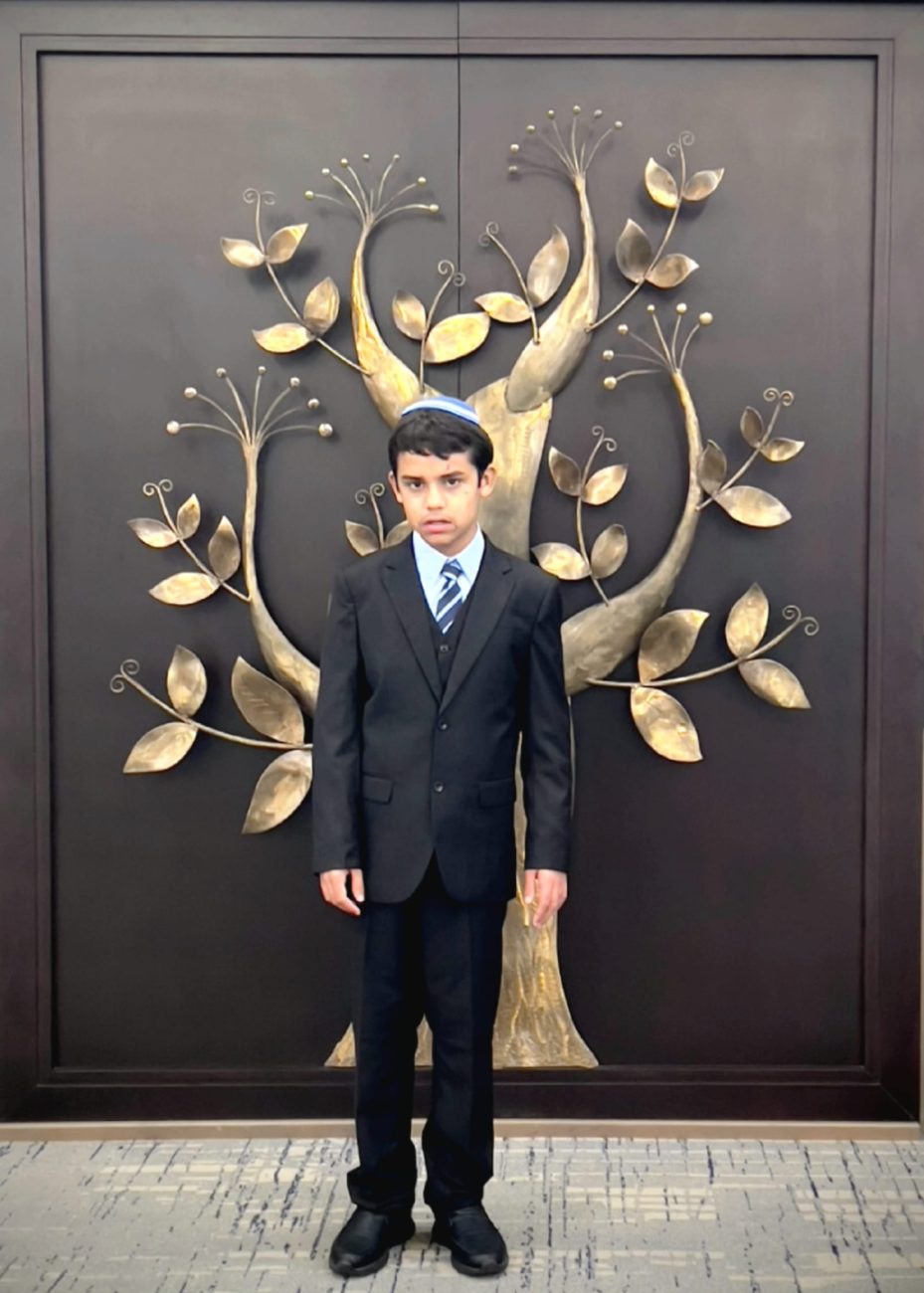
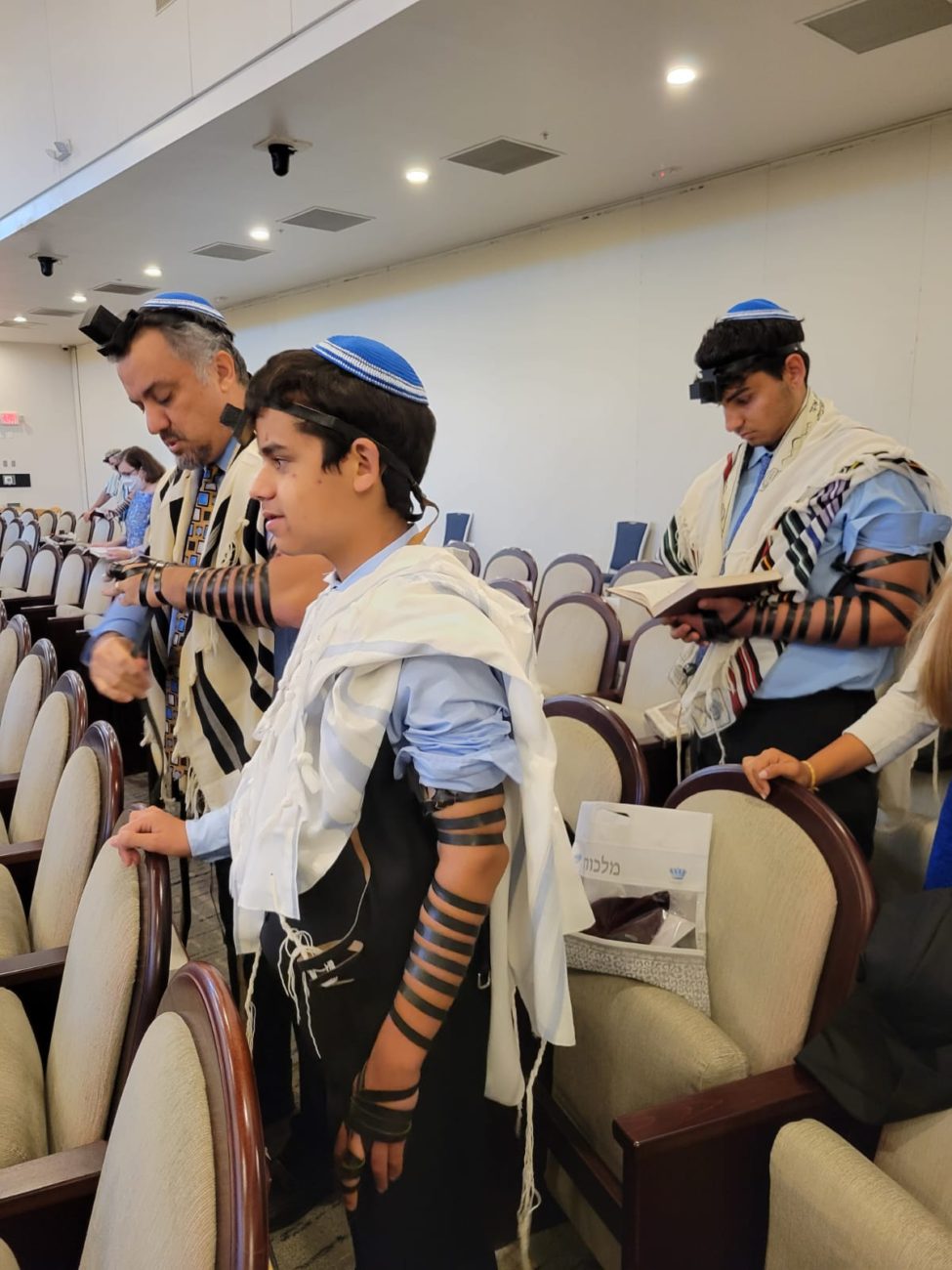
Regarding the first statement, Ilan is a Soul who has never fully come down to earth, at least not yet. He is suspended somewhere between heaven and earth. He feels at home in the temple and can stay here for services that are hours long. Ilan is also missing his ego to a large extent. He never asks for anything, never gets bored, has no personal ambitions that I know of, and is always happy, unless he is in physical pain, which unfortunately is often. He deals with frustration better than anyone I have ever seen; so much so that I point him out to my other children as an example of how to pivot away from a frustrating situation.
The second statement is even more shocking. Ilan has literally brought dozens of people into our lives. Many therapists have given of their priceless time and kindness to help our son, and we will forever be grateful. I can’t count on how many strangers we have met, all because Ilan just went up to them and showed them some affection, and then we had to apologize for his behavior. Ilan is somehow able to transform the environment around him into one of peace and cooperation, all without saying a word.
This brings up an interesting point. We often see autism as a disability, and there is no getting around the fact that there are elements of disability here; there are many things that Ilan can’t do, and there is much pain that he suffers when others do not. However, what if this is only part of the story? What if autism is, in part, the next step of human evolution? Ilan, after all, is among the first generations born into a world of technology.
The world I grew up in was disconnected. When I was 7 years old I moved from Spain to the United States. In those days, when you moved, you moved. You completely disconnected from your old environment. There was no cable TV, no cell phones, no Internet, no news, and phone calls were expensive. But nowadays, no matter where you are, it is almost impossible to disconnect. What effect will this have on the children? No one knows, but some of these symptoms known as autism could be among those effects.
Finally, many people wonder what life is like with an autistic child. The truth is that anyone who has ever had an infant child in their home knows what it is like. The difference is that with autism, this period of infancy is extended indefinitely. Ilan slept through the night for the first time when he was 4 years old. To this day, at age 14, the house still needs to be on lockdown. All the rooms, cabinets, and refrigerators are locked. We don’t buy new living room furniture anymore because the last new set only lasted one year. To make matters worse, Ilan is a prankster, so this adds even more problems into the mix.
In spite of all this, Ilan is the light of our life. He is a spark of life bouncing off the walls of our house, constantly bringing happiness and laughter for no reason at all, which makes it even better.
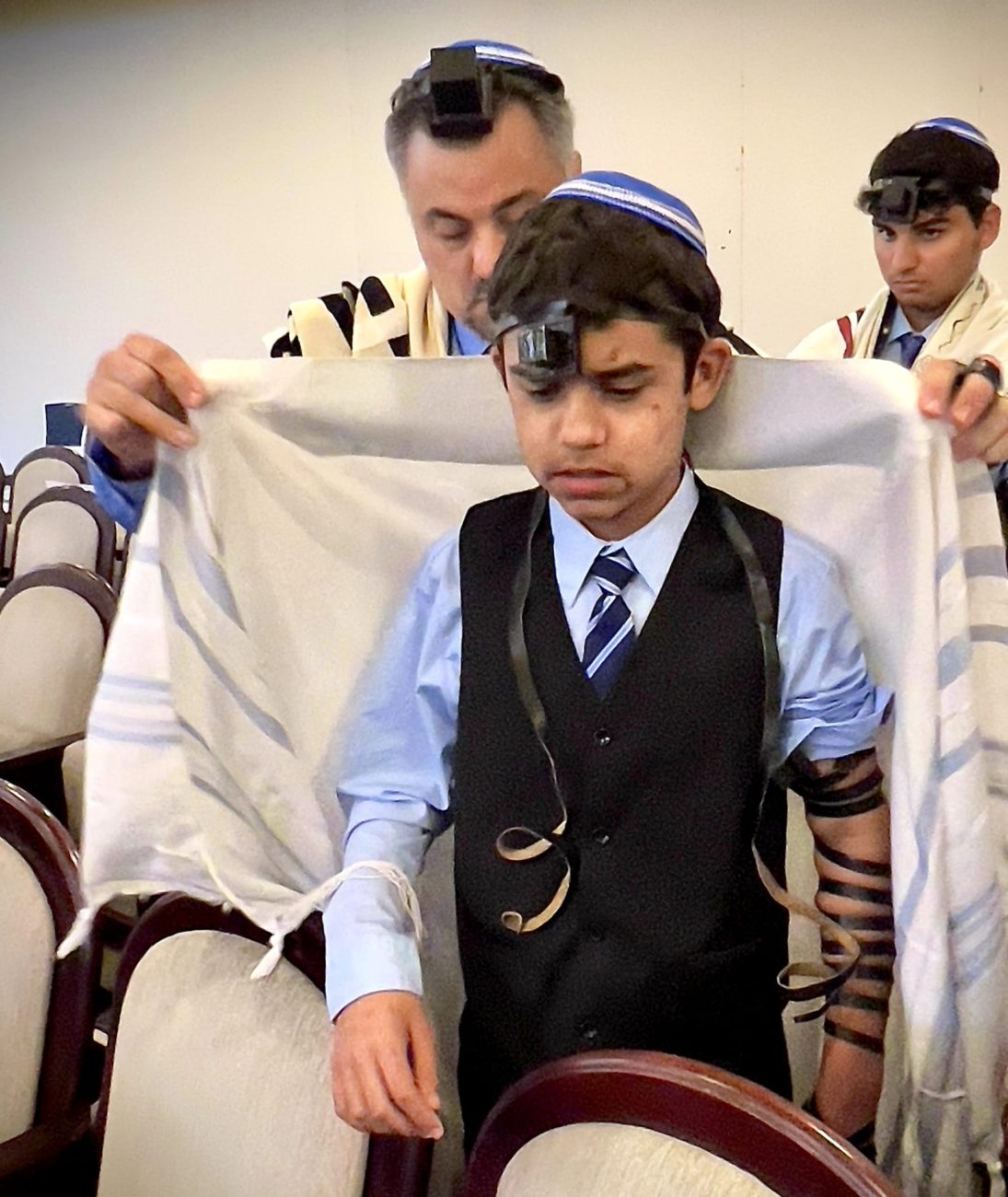
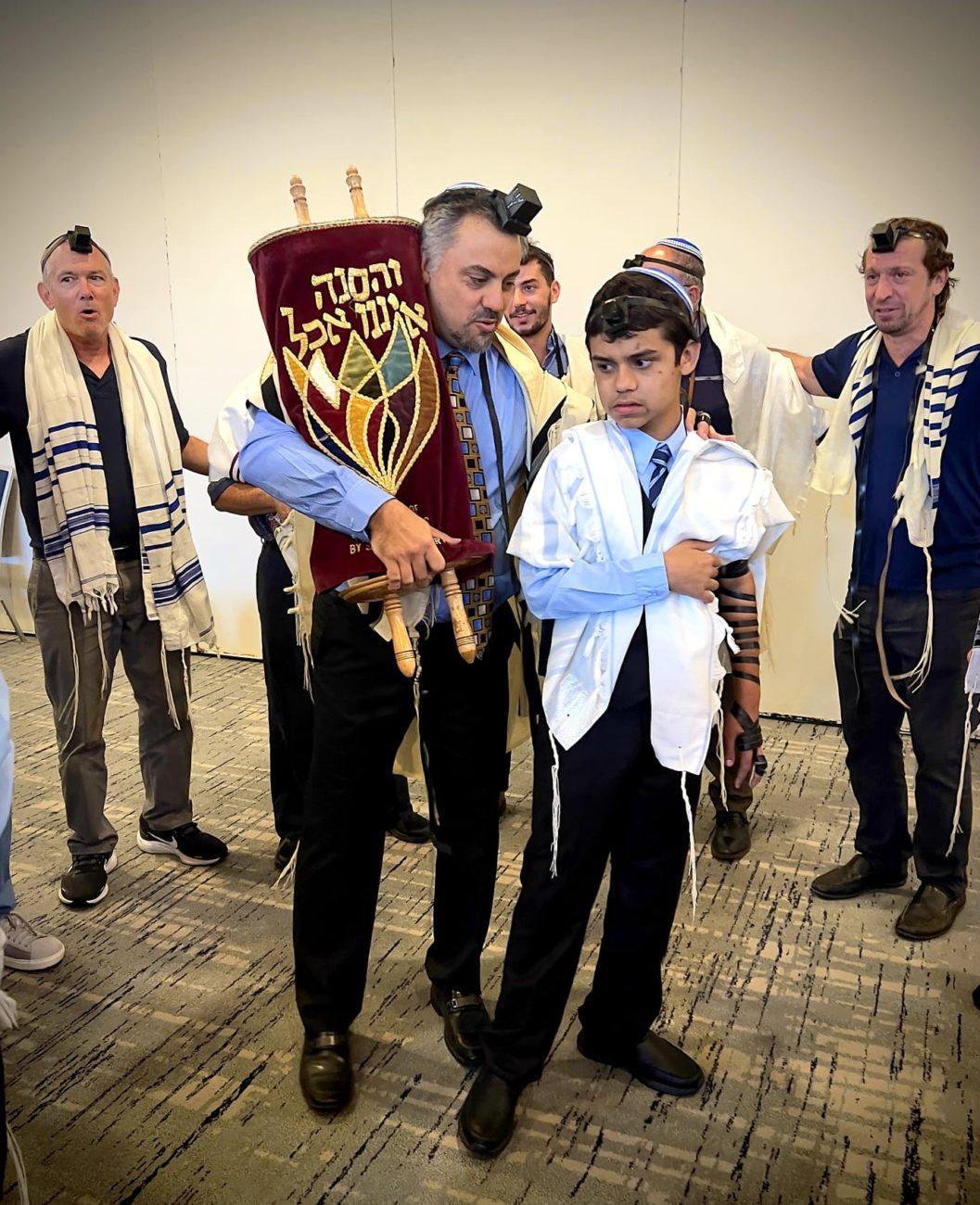
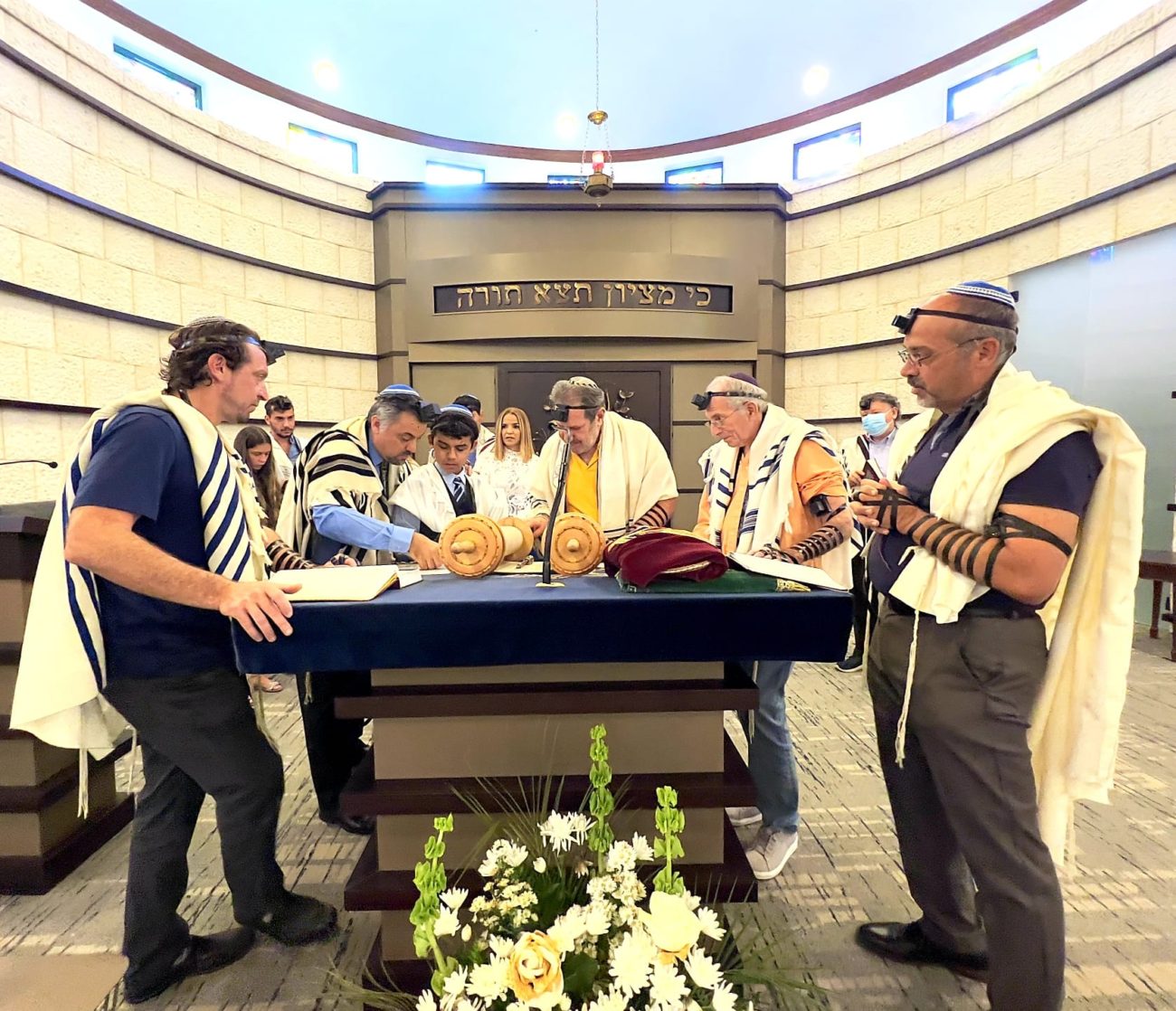
Now, what happens to the parent mentally when you receive such a diagnosis? The first thing you are hit with is uncertainty. Life’s progress becomes suspended and you have no idea what the future will bring. Ilan may end up in a State-run assisted living home, or he may suddenly turn into a genius-savant and end up at MIT. Who knows? All this uncertainty and pain causes one to question many things, and the biggest question I asked myself is: “Why did G-d do this to me?” Many of us think that when we pray, we ask for what we want and G-d gives it to us. However, G-d definitely did not give me what I wanted, so there must be another answer.
I quickly thought that I must have done something really bad and that G-d was giving me what I deserved. This satisfied me for a while, but eventually I realized that this was not true either. The notion that G-d delights in judgment and is waiting for us to slip up so he can hit us over the head is mistaken, and in my case, was born out of frustration. If G-d really delighted in judgment, none of us would be alive. In the Jewish tradition we are told that G-d has four measures of compassion and one measure of Judgment, so the judgment is there, but is not foremost.
So, if I did not get what I wanted and I did not get what I deserved either, then what did I get? Why did G-d do this to me?
The answer came a long time later, when I realized that G-d gave me what I needed.
Needed?!? For what? Who needs this?
It is what I needed to ascend!
In the midst of all the uncertainty surrounding Ilan, there is one thing that is absolutely certain. Those of us around Ilan are no longer the same people. We have changed. So, G-d has created change in our lives. And this change has caused us to ascend.
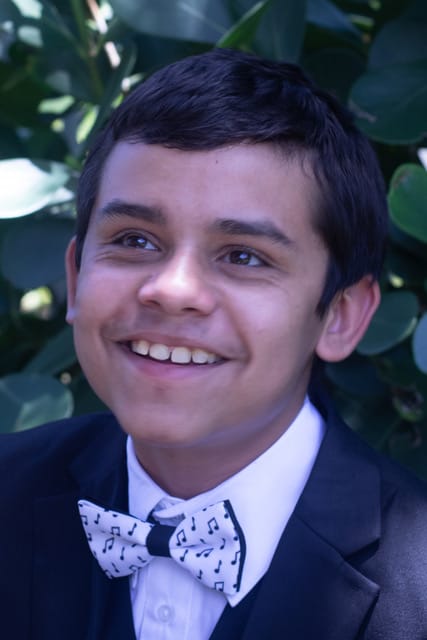
And so, Ilan is leading us by example, helping us to ascend on the path of holiness. A path marked by G-d, my rock, in whom there is no unrighteousness.

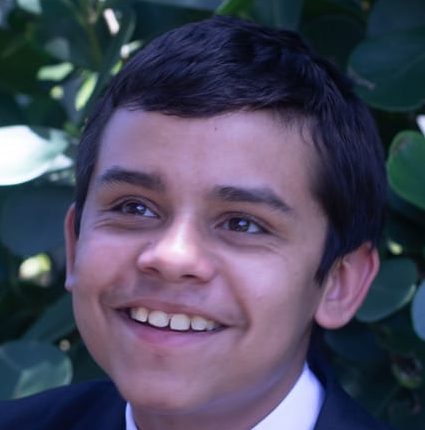






Ohr HaChaim Yomi – Emor